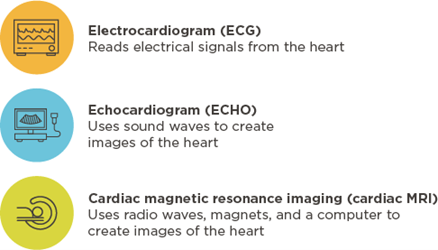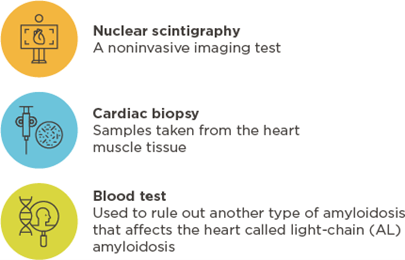Sponsored content provided by Pfizer
For some, getting a diagnosis of heart failure can be a challenge. Heart failure symptoms can be mistaken for other conditions or signs of natural aging. But the diagnosis of heart failure is just the starting point. Heart failure gets worse over time, so it is important to find out if there is an underlying illness. Knowing what is causing your heart failure as soon as possible can help you get the right care.
One cause of heart failure is a condition called transthyretin amyloid cardiomyopathy (ATTR-CM). ATTR- CM is a type of amyloidosis, a group of diseases in which certain proteins change shape or “misfold,” and can build up in different parts of the body. When these misfolded proteins build up in the heart, it may lead to ATTR-CM. ATTR-CM is a serious and underdiagnosed disease that can mimic the signs of other more common causes of heart failure. ATTR-CM has symptoms that may seem unrelated to the heart such as shortness of breath or stomach issues.
ATTR-CM worsens over time, so if it is suspected, you should talk to your cardiologist. Early detection and diagnosis can help patients and their doctors create a plan to manage the progression of ATTR-CM. Before your appointment, you can visit Your Heart’s Message, a website for those living with or at risk for ATTR-CM. This website has many resources that can help you understand ATTR-CM. You can create your own customized guide to help prepare for your discussion with your doctor.
Signs and symptoms of ATTR-CM
Diagnosing ATTR-CM can be a challenge. Patients may present with signs that seem related to their heart failure, while others may not. These may include symptoms such as swelling in the lower legs, carpal tunnel syndrome, shortness of breath, irregular heartbeat, lower back pain, and fatigue. Sometimes, these symptoms overlap with other heart conditions, making it harder to identify.
Dempsey, a retired educator, was diagnosed with ATTR-CM. He can attest that being proactive and following up with your doctor is important. If you have heart failure but don’t feel better or if you’re experiencing the signs and symptoms of ATTR-CM it is important to talk to your cardiologist. They can help you rule out or confirm ATTR-CM.

“I initially noticed that I was experiencing shortness of breath, which led me to several different doctors and multiple tests, including an ECG," said Dempsey. “The ECG showed that I had an irregular heartbeat, and more tests were conducted finally leading to a diagnosis of ATTR-CM.”
Because there are so many different signs and symptoms of ATTR-CM, your cardiologist may have to do different tests.
Types of tests to confirm or rule out ATTR-CM
A cardiologist may first order the following tests to assess how a person’s heart is working and look for signs of ATTR-CM. These tests may include:

While these tests may not be used to confirm an ATTR-CM diagnosis, they can help your doctor learn more about your heart. It can also help them determine the need for more testing. To confirm or rule out ATTR-CM, the following tests may be conducted:

“I think it’s critical that people not only get an early diagnosis, but they get a complete diagnosis. It’s important to be aware of the signs and symptoms of ATTR-CM and ask your doctor good questions about what you’re experiencing and if additional tests are appropriate,” said Dempsey.
If you suspect you have ATTR-CM, talk to your cardiologist. Visit www.yourheartsmessage.com/ask-your-cardiologist and make the most out of your next discussion.
Helpful Resources
Visit the HFSA Patient Hub to explore tools and resources to help patients stay healthy while living with heart failure.
View Heart Failure Awareness 365 activities to stay up-to-date on tips for healthy living for people living with heart failure.
